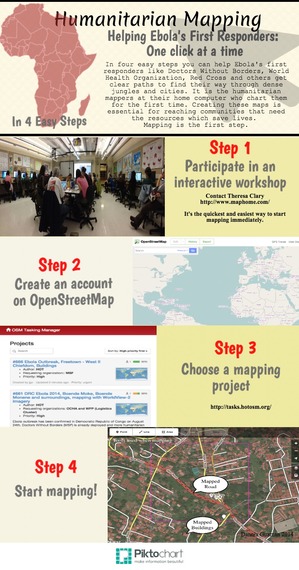Lately in the news we have heard over and over again of the Ebola outbreak. Many of us have a sense of its severity but may not understand exactly what is happening. This uncertainty may breed panic and even a sense of powerlessness among some. We can easily dismiss this matter as being out of our control. Or, something that someone else is going fix. Unless we have ties to the communities being affected directly, it is easy to go on focusing our attention on our immediate world around us.
Why should we care? We should care simply because these are lives being lost to something treatable. Ebola is not only "their" problem; it is really "our" problem. In this interconnected world we cannot naively believe that health-related crises can be contained within the boundaries of any area of the world. Instead of being reactive to the challenges, we need to proactively ask ourselves how we can focus our energy in finding solutions.
It turns out that there is a simple way each and every one of us can help. That is through a humanitarian mapping global collaboration. Anyone with a computer with Internet access and the ability to point and click has all the expertise needed to support the fight against Ebola.
Humanitarian mapping refers to the process of taking satellite images and using online tools to tag key features like roads, paths, buildings and residential areas in places struck by disaster.
This mapping is so needed because many cities and villages affected by Ebola are not accessible. Ebola's first responders like Doctors Without Borders, World Health Organization, Red Cross and others need clear paths to find their way through dense jungles and cities. It is the humanitarian mappers at their home computer who chart these places for the first time. Creating these maps is essential for reaching communities that need food, information, medicine and other resources which save lives. Mapping is the first step.
In her effort to show students and community members how they can make a difference through mapping, Theresa Clary's mission is to facilitate tutorials for getting started. One of the many recent locations she has visited is the Smith College Spatial Analysis Laboratory where she presented an hour-long interactive workshop. That one workshop is part of Clary's much broader national initiative to quickly raise awareness about humanitarian mapping and provide the fundamentals so anyone immediately after the workshop can join this global collaboration and start mapping right away.
After learned, the beauty is anyone can access this easy web mapping project from anywhere and freely plot as long as possible. Whether it is 10 minutes at home marking a single building or path or sitting for hours with a friend and mapping a city − every click counts.
One click at a time we can all fight Ebola. In this interdependent world we all have a role. Whether by sponsoring this workshop, sharing this article and increasing awareness or by mapping, we can all be part of the solution.
